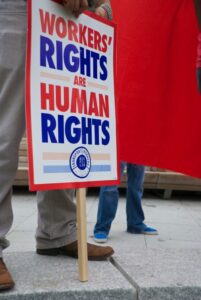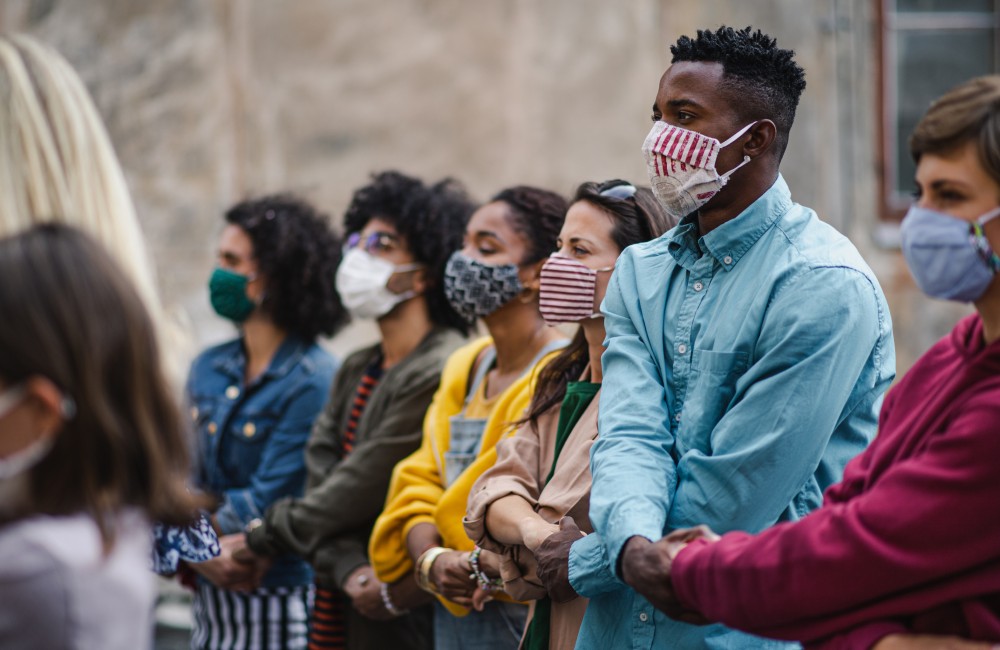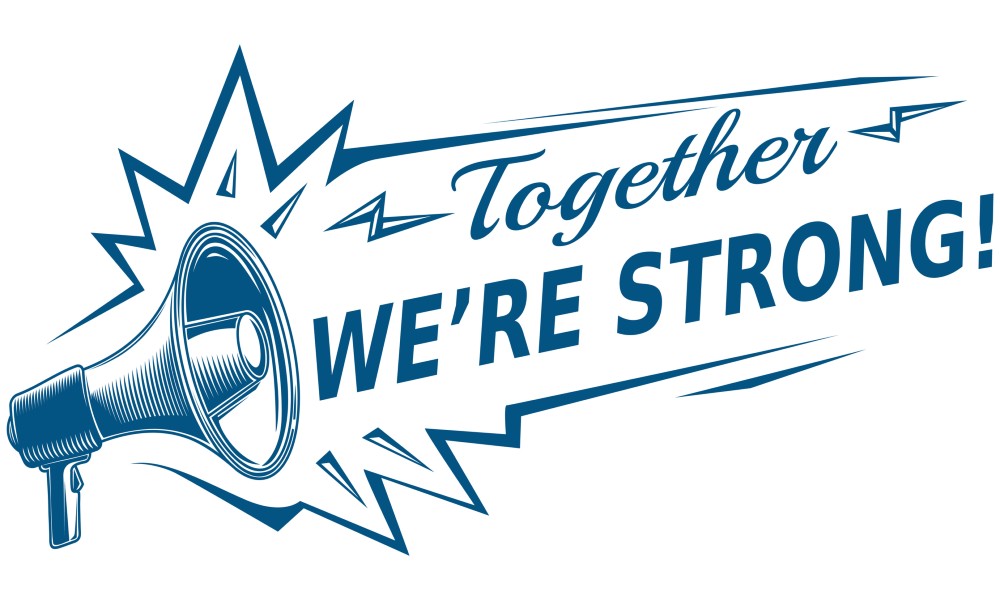As 2021 near its end and 2022 draws closer, there are a few things to consider as it relates to building and strengthening union solidarity across diverse groups. This is particularly true when it comes to addressing systemic racism, discrimination, and other forms of exclusion faced by union members from racialized and historically underrepresented groups.
The realities of racial inequities and injustice for Indigenous, Black, Latinx, Asian, 2SLGBTQIA+, people living with disabilities and underrepresented union members who work in the motion picture, television, and entertainment industry have been well documented. For example, Sharen Davis, a two-time Oscar nominee for costume design (for Dreamgirls and Ray), told Variety a story about being misidentified when she reported to set and that “security usually assume[d] she [was] an extra. [Unfortunately, she was] not alone in that experience.”
In response to these realities, union members in entertainment unions across the U.S., Canada, and globally have issued calls to action, asking unions to address systemic racial discrimination, as well as, deepen their commitments to intersectional forms of racial equity and racial justice.
In response, unions like IATSE have taken steps to publicly acknowledge their lack of timely intervention. In June 2020, Deadline quoted IATSE President Matt Loeb’s statement “We have not always lived up to our own values and ideals of unionism, through our action, inaction, apathy, and at times ambivalence… We can do better. We must do better. We will do better.” IATSE’s commitment to address systemic racism and bias faced by racialized and underrepresented members is one example of an entertainment union taking on the challenge. Similarly, in a Los Angeles Times article, Teamsters Local 399’s Steve Dayan, secretary-treasurer stated that “Black members have raised concerns about not getting enough opportunities and of experiencing racism and microaggressions in the workplace.” He also acknowledged that “[it’s] important for the unions to have these discussions so that we can bring issues to the studios.” By taking these public stances, unions are sending powerful messages to their members and the industry that racial justice and inclusion are workers’ rights.
 Over the course of 2021, some entertainment unions have started to offer their members equity, inclusion, anti-racism, and anti-oppression tools and resources. One example is IATSE Local 891 in British Columbia. They provide their members with information related to reconciliation, equity, diversity, and inclusion, including FAQs, a glossary of terms, links to culturally responsive mental health supports, and an instructional card on how to report workplace discrimination.
Over the course of 2021, some entertainment unions have started to offer their members equity, inclusion, anti-racism, and anti-oppression tools and resources. One example is IATSE Local 891 in British Columbia. They provide their members with information related to reconciliation, equity, diversity, and inclusion, including FAQs, a glossary of terms, links to culturally responsive mental health supports, and an instructional card on how to report workplace discrimination.
What I’ve learned over the past 20 years working with unions is that members require additional skills, knowledge, and support to navigate quick-changing work environments like film and television productions. In an industry with so many moving parts, it is important for union members to have the necessary tools to develop stronger interpersonal relationships and better communication skills so they know what to do to respond to incidents of racial injustice, racism, and acts of exclusion.
A powerful example of collective response was seen earlier this year on the Vancouver film production, Gone Mom. An incident occurred where a lighting technician was instructed by a producer to remove their “Black Lives Matter” t-shirt. In an act of solidarity, crew members came together and wore “Black Lives Matter” t-shirts. When crews act together against racism and work toward racial equity in the industry, powerful messages of care, connection, and inclusion are sent to their Indigenous, Black, racialized, and underrepresented crew members.
You may be wondering why it is important for union members to have these skills at this time? The answer is layered. However, I know that union kin from Indigenous, Native American, Black, Latinx, Asian, other racialized and historically marginalized communities need to have access to more equitable outcomes, as well as safer and inclusive work environments. As part of this work, entertainment unions are taking action to engage their members. For example, in July, IATSE’s General Executive Board unanimously adopted an equity statement that called on members “to identify, minimize, or erase obstacles that are within [their] control to make a more equitable pathway to unionism, leadership, and equality… This growth will ensure a stronger union, and together, we will rise!”
So what can individual union members do to express their support, challenge racial inequities, and build more inclusive work environments? They can work toward building an anti-racism and anti-oppression practice. It involves putting into motion personal and professional commitments to assist in the co-creation of progressive work. It also requires engaging in a process of unlearning, transforming, and reimagining how power, personal privilege, worldview informs/shapes one’s professional life, decision-making, and use of discretion. Lastly, this practice is a lifelong journey in which union members can mobilize their lived experience, knowledge, and skills to critically analyze historical and contemporary forms of racism and oppression against marginalized communities. They can also develop strategies to address exclusion on set or on the floor.
Below, I have developed a list of tips and considerations that union members in the industry can use to develop their anti-racism and anti-oppression practices.
10 Tips and Considerations to Build an Anti-Racism and Anti-Oppression Practice:
- Understand your social location & your point of entry into anti-racism and anti-oppression;
- Identify and unpack your core beliefs and values about racism, anti-Black racism, equity, diversity, inclusion, decolonization, anti-racism, and anti-oppression;
- Identify your professional and social spheres of influence, power, privilege, and marginality;
- Understand your communication style and the different ways you deal with conflict/tension;
- Access tools, resources, and communities of support provided by unions, groups, and organizations;
- Develop communities of care with other crew members;
- Be prepared to engage in difficult conversations about racial equity, racial injustice, anti-racism, and anti-oppression;
- Practice your communication, conflict resolution, and intervention skills;
- Develop a daily practice of intentional critical self-reflection and review them over time to identify strengths and gaps in your anti-racism and anti-oppression process; and
- Speak back to fears, and understand the risks and costs of advocating for transformative work environments.
It remains clear that systemic racism, discrimination, acts of exclusion require each union member to come together and engage in a process of sustainable change, where they co-create anti-racism and anti-oppression strategies with other crew members.
Working together and in solidarity is the union way. Integrating an anti-racism and anti-oppression practice into advocating for workers’ rights, and working to support kin on set and on the floor creates safer work environments for all. Lastly, as Audre Lorde reminds us, “When we speak, we are afraid our words will not be heard nor welcomed, but when we are silent, we are still afraid, so it is better to speak.” Doing this work requires courage, resilience, unwavering commitment to racial justice, and co-creating a better tomorrow for the industry.

Tomee Elizabeth Sojourner-Campbell has an M.A. in Social Justice and Equity Studies. She is an Anti-Racism and Anti-Oppression Advisor and Consultant to entertainment-based unions. Tomee offers advisory, educational, and coaching support to union members and unions. She is also a national and international media commentator. You can reach out to Tomee on Twitter and tomeesojourner.com.
Images sourced from and copyright iStock.







